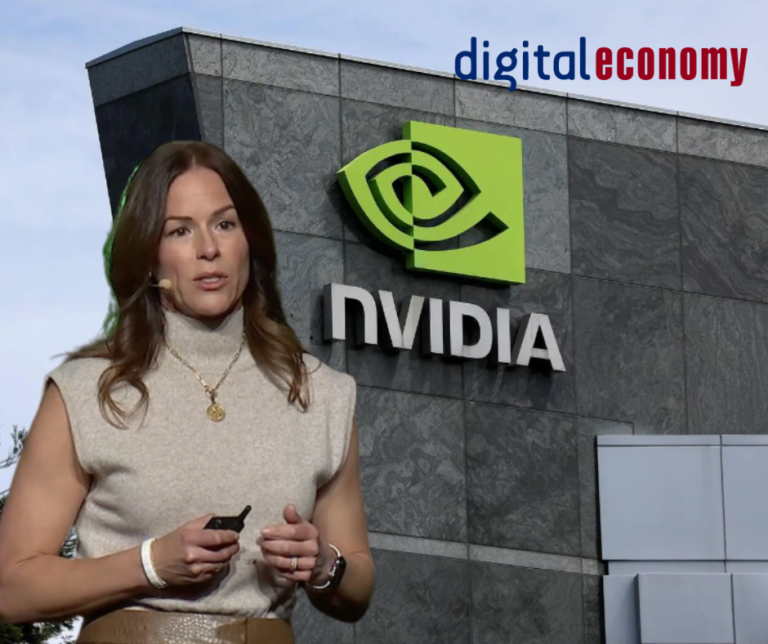Nvidia, a leader in artificial intelligence, is expanding its presence in healthcare with ambitious plans to bring AI-driven robotics, or “physical AI,” to hospitals nationwide. The technology giant envisions a future where robots assist in various hospital tasks, from X-ray operations to linen delivery, part of Nvidia’s broader push to dominate the advanced robotics market.
Kimberly Powell, Nvidia’s Vice President of Healthcare, shared the company’s vision during a keynote at the HLTH conference, noting the transformative potential of AI in healthcare. “This physical AI thing is coming where your whole hospital is going to turn into an AI,” Powell told Business Insider. “You’re going to have eyes operating on your behalf, robots doing what is otherwise automatable work, and smart digital devices.”
Nvidia has forged partnerships with healthcare companies and invested heavily in digital health and biotech, spanning virtual care, drug discovery, and now robotics in clinical settings. According to Powell, the next wave of AI advancements will bring robotics into core medical tasks, evolving hospitals into intelligent environments equipped with digital devices capable of real-time interaction.
Building the “Physical AI” Infrastructure for Healthcare
Physical AI, as Powell described, involves creating models that can understand and engage with the physical world. This approach requires extensive AI training, digital simulations of hospital environments (called “digital twins”), and robotic systems designed to perform precise tasks—such as applying the correct pressure to hold a surgical scalpel. Nvidia is addressing this need through partnerships, including one with IT solutions provider Mark III, which works with University of Florida Health to create digital simulations of hospital settings for AI development and training.
Nvidia’s collaboration extends to other companies, such as Moon Surgical, whose robotic assistant uses Nvidia’s Holoscan platform to provide additional “arms” in surgeries, adjusting cameras and holding instruments. These surgical robots can assist in complex procedures, enabling a more dynamic, responsive operating room environment.
Expanding Robotic Functions Beyond the Operating Room
Nvidia’s vision for hospital robotics isn’t confined to the OR. Powell cited Mayo Clinic’s recent deployment of linen-delivery robots at its Florida campus as an example of broader applications, where robots could deliver supplies, monitor patients for falls, and even manage imaging scans independently. Powell described a future where X-rays could be performed without human technicians, with patients entering a room where AI-powered cameras position and scan them automatically.
While Nvidia is deeply embedded in healthcare partnerships, Powell clarified that the company has no intentions of becoming a healthcare provider. Instead, Nvidia aims to support digital health innovations, including investments in startups.
Key Partnerships and Investments in Digital Health Startups
Nvidia’s venture arm, NVentures, has invested in several healthcare-focused startups. One notable example is Abridge, a medical scribe technology company that leverages Nvidia’s advanced speech recognition tools, valued at approximately $2.5 billion. Hippocratic AI, backed by General Catalyst, received Nvidia funding in September to develop AI-powered agents that can interact with patients via video chat.
ALSO READ: TECH LEADERS URGE POLAND TO PRIORITIZE DIGITAL FUTURE IN EUROPE
Additionally, Nvidia has teamed up with Microsoft to support a new wave of healthcare startups. Through a joint initiative with Microsoft for Startups, Nvidia’s accelerator program, Nvidia Inception, will provide cloud credits, AI tools, and resources to emerging healthcare and life sciences companies.
Challenges and the Path Ahead
While Nvidia’s technological advancements have brought sophisticated robotics within reach, implementing physical AI in healthcare will still take time, Powell acknowledged. Hospitals are expected to fully embrace these innovations within a few years, but core elements of AI-driven automation are already making their way into clinical environments.
As Nvidia builds on its AI expertise, the company remains positioned at the forefront of healthcare innovation, merging AI capabilities with hospital operations to create smarter, more efficient health systems.




